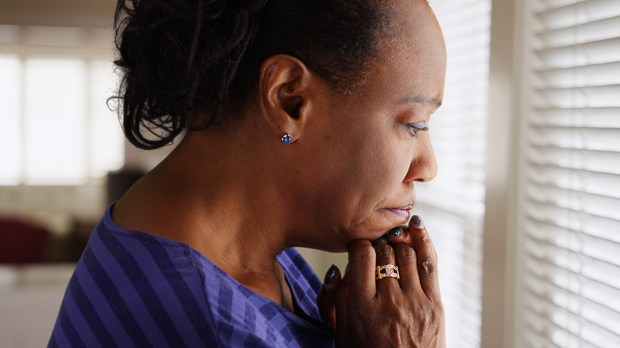Lenten Campaign 2025
This content is free of charge, as are all our articles.
Support us with a donation that is tax-deductible and enable us to continue to reach millions of readers.
I’m writing this from Texas, where my family evacuated to escape Hurricane Irma. Although our little town bore the brunt of the storm’s wrath and we are anxiously awaiting news of damage to our home, all my friends have reported that they made it through the storm safely. In fact, thus far our county has had no reports of loss of life or injuries.

Read more:
Key West shrine provides spiritual confidence against hurricanes like Irma
I’m holding these two things together as my husband and I try and figure out when the roads will be passable for us to return and begin the task of rebuilding. I saw our community come together in a beautiful way before and during the storm, and being separated from them as the eyewall took out power and cell signal was more distressing than I anticipated. I didn’t realize how much we loved Ave Maria until it was threatened.
So there’s a weird cognitive dissonance going on. I’m anxious about damage and the cost of repairs, but eager to get back home to our community and start the process of rebuilding together. I’m even strangely happy, which according to several psychologists, isn’t strange at all:
“Acknowledging the complexity of life may be an especially fruitful path to psychological well-being,” according to psychologist Jonathan Adler of the Franklin W. Olin College of Engineering. He feels happiness can come from noticing and embracing a wide spectrum of emotions — both good and bad. … For example, someone might say, “I feel sad because of the recent losses in my life, yet I am also happy and encouraged to be working through them for a positive outcome.” According to Adler, “Taking the good and the bad together may detoxify the bad experiences, allowing you to make meaning out of them in a way that supports psychological well-being.”
Adler and his colleague Hal Hershfield performed a study on this mixed emotional experience and discovered that feeling cheerful and dejected at the same time is a precursor to improved emotional well-being. Hershfield followed up with a much more extensive 10-year study that found a direct correlation between accepting the mix of one’s emotions and good physical health.

Read more:
Here’s a Harvey and Irma you’re going to love
The question for me is how to accept negative emotions, especially the looming anxiety of returning to face months of costly and time-consuming repairs. The joy of seeing our community come together and eagerness to be reunited isn’t always strong enough to drown out the fear.
Apparently, though, drowning out the fear is exactly the wrong thing to do. The key isn’t to just admit that you feel both negative and positive emotions — the key is to allow yourself to feel the negative emotions. A 2012 study found that practicing mindfulness, particularly when it comes to emotions, can help people overcome anxiety by encouraging acceptance of negative feelings and then working toward improvement.
Which is good to know, especially for me. I’m sure there will be many moments of negative feelings in the coming weeks, but the sooner I can learn to embrace those feelings instead of rejecting them, the sooner I can let them go and move on to the hard but necessary work of rebuilding — and come out of this experience both happier and healthier.

